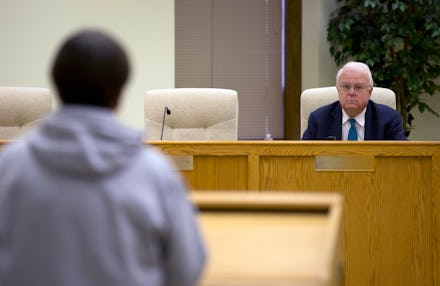This Bill Could Single-Handedly Strike Down NSA Surveillance

On Oct. 29, Rep. Jim Sensenbrenner (R-Wisc.) introduced the USA Freedom Act to limit the power of the National Security Administration (NSA). The same congressman authored the Patriot Act, which empowers the NSA's surveillance programs, in 2001. This change of heart is somewhat hard to believe, as it should be. Twelve years after its passage, why has Sensenbrenner just expressed concern for the program? Though some may believe that in the wake of the NSA's scandal he changed his mind to protect the liberty of Americans, that's not his main goal.
The USA Freedom Act amends two main pieces of legislation. First, it changes Section 215 of the Patriot Act so that the NSA cannot continue gathering phone records and electronic data on such a massive scale. Second, it changes the FISA Amendments Act, requiring either a court order or an emergency before the United States can access FAA-collected data. In addition, the USA Freedom Act forces companies to make information requests by the government public, and the government would have to reveal the number of court orders it uses for surveillance.
Now, this seems like a good idea since it limits the government's surveillance options. It's the most comprehensive legislation being discussed in Congress right now – especially compared to Sen. Diane Feinstein (D-Calif.)'s proposal to increase the NSA's authority. But why didn't he oppose Section 215 in 2001, instead of authoring it?
Because of the recent NSA scandal. Sensenbrenner believes Congress has misinterpreted the Patriot Act. In an op-ed piece in the L.A. Times, Sensenbrenner explains his original intent for the legislation was for it to gather "business records when there are reasonable grounds to believe that the records are relevant to an authorized investigation into international terrorism." However, he still doesn't distinguish relevant and irrelevant records. Without having clear, definitive language, it's difficult to outline the NSA's authority.
The result of this vague authority is the misuse of power. The Patriot Act has allowed the FBI to strike fear in the daily lives of many Americans. It seems unbelievable, and it should be. But it's real. When the Patriot Act was first implemented – from what we knew – the FBI spied on entire communities of Middle Eastern background who had no connection to terrorism. It instructed its agents to look specifically for people who have beards, pray at mosques, or wear hijabs. It went so far as to search people's homes because they were anti-war.
The result created an anti-Muslim culture. Many Muslim-Americans, South Asians, and Middle Easterners were, and still are, the victims of hate crimes, employment discrimination, and unjustified surveillance. In one instance, a Muslim high school student in Staten Island was routinely harassed physically and called a terrorist. He was assaulted so brutally that his urine contained blood and he suffered memory loss.
Now where was Sensenbrenner during these incidents? Why doesn't he address the rest of the Patriot Act?
I'll tell you why. He's the third most funded Congressman in Wisconsin by the National Rifle Association (NRA). The NRA fears a national gun registry, even though it has its own massive registry. On Sept. 6, Sensenbrenner wrote a letter to Eric Holder voicing the NRA's concerns. There are many reasons why the NRA fears a government registry of gun owners. For one, as stated by Wayne La Pierre, executive vice president of the NRA, it could levy a tax on the NRA's customers. It could build a comprehensive background check, potentially reducing the number of NRA customers.
Section 215 remains an infringement on Americans' privacy, but it seems that's not what Sensenbrenner is actually worried about, or he would've objected much sooner.